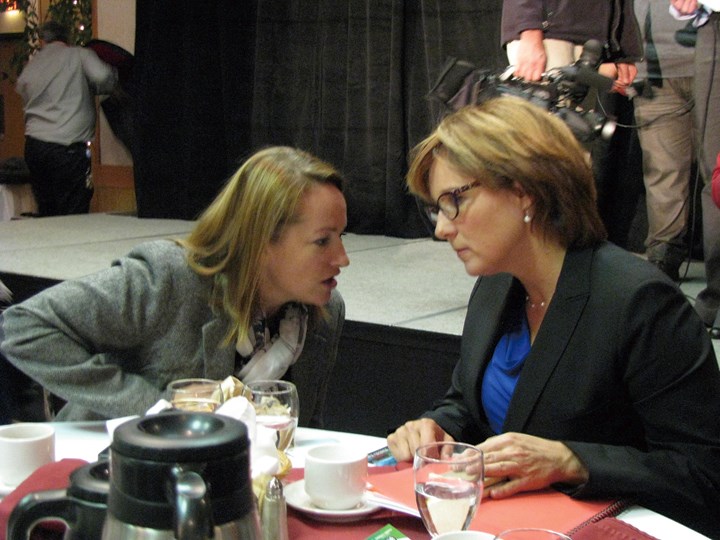In a province somewhere near the top of the Canadian class in economic performance, Prince George should feel especially important, according to the B.C. premier.
Christy Clark was the keynote speaker Friday at the Chamber of Commerce Leadership Luncheon.
"You can't grow your national economy without Prince George. Canada needs you," she said, listing the industrial potential coming to life in the northern region, and all the required infrastructure to process and move these products. Employment numbers and provincial income numbers indicate this area is one of the hottest economy regions in Canada, with more national emphasis emanating to the Pacific Rim, positioning Prince George to handle even more of the national agenda.
"This is news just announced today: we have created 5,700 net new jobs during the month of September. That is No. 1 in the country," she said. "Compared with one year ago, B.C.'s labour force has increased by 37,700 people. In Prince George, there are 52,000 people employed today and that is the highest number in this city's history. Since the release of 'Canada Starts Here: the BC Jobs Plan', B.C. has added 57,400 net new jobs, putting it first in the country for job creation."
She said that Alberta premier Alison Redford tries to claim some victories in the national employment statistics too, but this feud with her east-of-the-Rockies counterpart is a happy one.
"If we are arguing over who is creating the most jobs, that is a great fight to have," she said. "We should be competing to set the bar at the highest possible level, compete to be the best."
The Chamber of Commerce members in the audience pointed out to her that the region's biggest problem was not job creation but too few workers to do the jobs the area's businesses need done. Businesses fail if they can't deliver on their contracts, or businesses don't even get started if the owners know they haven't the people to fulfill the tasks - even of they are perfectly qualified in all other ways.
Clark said efforts were already afoot to attract new people from overseas into the province especially for those jobs, but most of the provincial government effort was going to centre on boosting the underemployed aboriginal workforce and revamp the education system so it fits the needs of B.C.'s students and employers.
"We're going to stop training people for jobs that don't exist and start training them for the ones that do exist. It's not a revolutionary thought, but it took awhile to get there," she said, promising announcements were coming sooner rather than later on that issue. "I want B.C. kids to be first in line for all those jobs being created."
Part of the success path included maintaining laws insisting the provincial government turn in a balanced budget every year, and keeping personal income taxes among the lowest in Canada by paying more of the provincial bills via industrial and commercial activity.
"It's based on the bedrock belief that the economy has to be based on the private sector," she said. "We need your input to make sure we are doing things that work for your community."



